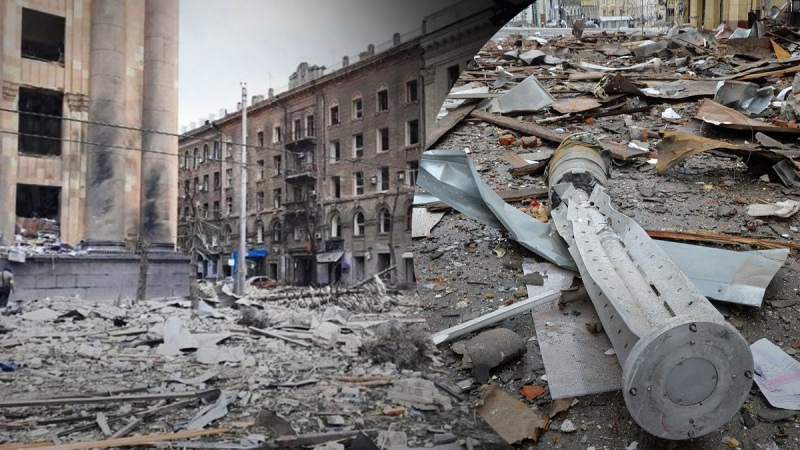
Russians shelled Kharkiv with banned cluster munitions/Channel 24 collage the invaders are cunningly shelling Kharkov, including cluster munitions. They are banned in the world because they cause excessive damage and have an indiscriminate effect.
The use of cluster munitions in Kharkiv was confirmed by Amnesty International.
Amnesty International found fragments of 9N210/9N235 cluster munitions in different parts of Kharkiv. Investigators also recorded multiple impacts, notably striking ground chips consistent with expected 9N210/9N235 cluster munition marks.
Doctors at two Kharkiv hospitals showed Amnesty International researchers the pellets they had recovered from victims of cluster munition attacks.
p>
The enemy is shelling Kharkiv mercilessly
Kharkiv Mayor Igor Terekhov said on June 10 that the intensity of shelling of the city has decreased in recent weeks, but the enemies are now using more powerful bombs and rockets. The current destruction that the city is suffering is very significant.
Bombs and rockets of greater power have begun to be used in the city. And the destruction that exists today is very, very serious, – said Terekhov.
The goal of the enemy, according to the mayor, is to destabilize the situation in the city. The Russians want enterprises to stop working in Kharkov, and people to panic. Nevertheless, Terekhov assured that Kharkiv residents are courageous people who have begun to return to work.
What are cluster bombs and why are they so dangerous?
International humanitarian law prohibits the use of weapons that cause excessive damage or have an indiscriminate effect. These weapons include:
- chemical and biological weapons,
- anti-personnel mines,
- cluster munitions.
Human rights organizations have ample evidence of Russia's use of cluster bombs in Ukraine, both during a full-scale invasion and during the war in Donbas.
Help. Cluster munition is a special type of aerial bomb, characterized by thin walls . It consists of a tip, a body, a hollow form-shell. This form is filled with small fragments, aircraft mines, mines for various purposes (anti-tank, anti-personnel, incendiary). In one munition, the total mass of such dangerous utensils can be up to 10 kilograms.
As Bonnie Dougherty, Senior Weapons Researcher at Human Rights Watch, explained, cluster munitions threaten civilians for two reasons, in particular:
- they hit a wide area, not distinguishing soldiers from civilians;
- not all miniprojectiles explode immediately on impact. Up to a quarter of submunitions can remain on the ground and pose a danger to the civilian population for months, years or even decades after the conflict.
A resident of Kharkiv exclusively showed a house destroyed by the Russians: watch the video
< p>

